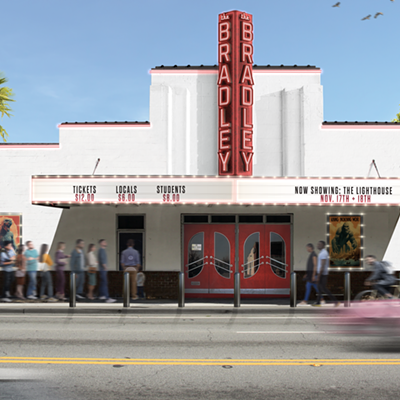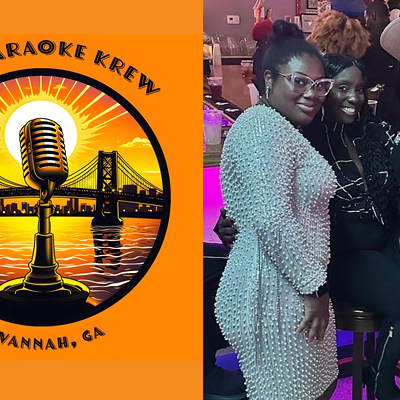All art reflects the time in which it was made, and future generations could devote an entire sociology course to the pop culture of the Dubya era. The political turbulence of the 60’s and 70’s produced its share of paranoid thrillers, some of which have aged remarkably well (The Parallax View and Z spring to mind).
But the past six years have produced an unprecedented run of movies and TV shows that address post-9/11 uncertainty and the desolation caused by the war in Iraq.
There are two parts of this movement. The first is the “where do we go from here?” drama like Good Night and Good Luck, Munich or Syriana. These films seek to make sense of a world dominated by forces we cannot control. There are no real answers, only deepening spirals of confusion. They also frequently star George Clooney.
Thoughtful films like these are a natural outgrowth of crisis in a free society. It’s the second part of the movement that’s different this time around: the apocalypse! Children of Men, Battlestar Galactica, 28 Days Later, Jericho, War Of The Worlds, V For Vendetta... all deal explicitly with the end of the world.
Even the new Transformers movie is an Aldous Huxley-style dystopia. Humankind’s extinction is now a Hollywood trend, like yuppie twentysomethings after Friends and quick-witted hitmen after Pulp Fiction.
Studio executives are so desperate to make a buck off the wave of mutilation that a film adaptation of Richard Matheson’s I Am Legend – the 1954 sci-fi classic about the one human left in a world populated by vampires – finally got the greenlight after 30 years of development.
In the strongest case yet for Earth’s imminent demise, reclusive literary legend Cormac McCarthy granted his first televised interview ever to Oprah for his bleak masterpiece The Road, which is about, you guessed it, the end of the world. I love the idea of legions of soccer moms devouring a minimalist, post-apocalyptic McCarthy novel about the “barren, silent, godless” landscape.
Do I think George W. Bush will lead us to Armageddon? I doubt it. But it takes a special kind of president to get everyone on the same page about the end of civilization.
Let’s see if this trend continues with the next administration. I’m predicting an onslaught of robot movies if Hillary wins.
In TV news that doesn’t have to do with Judgment Day, I’m one of the seven people who watched the final episode of Aaron Sorkin’s Studio 60 On The Sunset Strip. I’m sad to see it go, because despite the awful comedy sketches and ham-handed moralizing, it was an enjoyable show.
Even more frustrating is the fact that it perfectly illustrates a rarely discussed fact in the entertainment industry: the artist isn’t always right. They’re usually right, at least 90 percent of the time. But everyone needs to be put in check from time to time, and artists are no exception.
Studio 60, for example, could have been a resounding success had Sorkin simply listened to some advice. His main characters were supposed to be brilliant writers who set the world on fire every week with their incendiary sketch comedy. Trouble is, when we saw the actual sketches they were horrible, the kind of bile that would get rejected from SNL in its worst years.
So why not hire an actual comedy writer and make the show a collaborative effort? Or don’t show the sketches, only show what happens backstage. It was a tad unbelievable that network executives spent all of their time and energy on one late night comedy sketch show, so why not make the show about the whole network?
The execs, expertly played by Amanda Peet and Steven Weber, were the best characters on the show anyway. With the larger canvas of a network, events that seemed like a stretch (would Al Qaeda really target a comedian’s brother for kidnapping?) wouldn’t feel so forced.
But Sorkin refused to compromise in any way. He rarely ceded writing responsibilities, never listened to the public and wouldn’t cut his budget even when the show was dwindling in the ratings. So the show was cancelled.
He’s not alone. Director’s cuts can be a blessing, restoring a filmmaker’s vision to a project that was taken away (Brazil, Once Upon A Time In America, The Wild Bunch). But they can also be divisive; many prefer the original versions of Apocalypse Now, Donnie Darko, Superman II and Blade Runner.
I’m not at all arguing that studios should boss artists around and cut up their work. But I do think that film and TV are collaborative mediums that are often strengthened by a diversity of opinions. Until then, Matthew Perrys everywhere will be forced to suffer for the sins of Aaron Sorkins. 
Scott Howard is a writer, artist and all-around media gadfly. Write him at [email protected] or scott-howard.com.
To comment e-mail us at


























